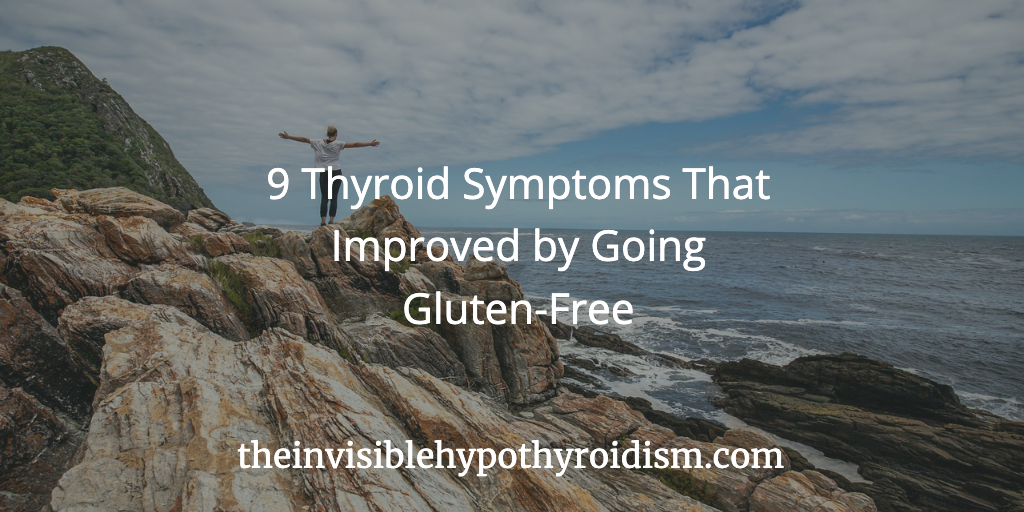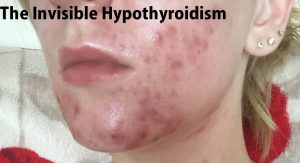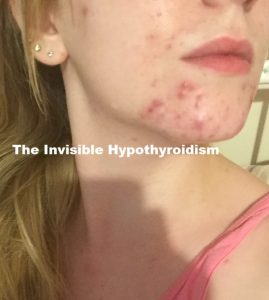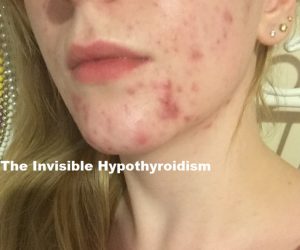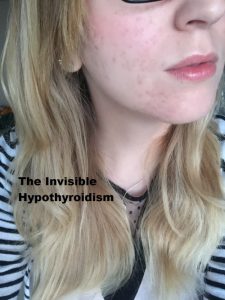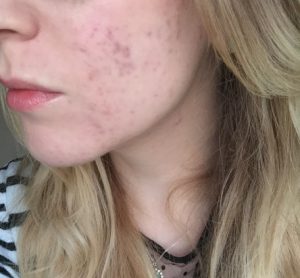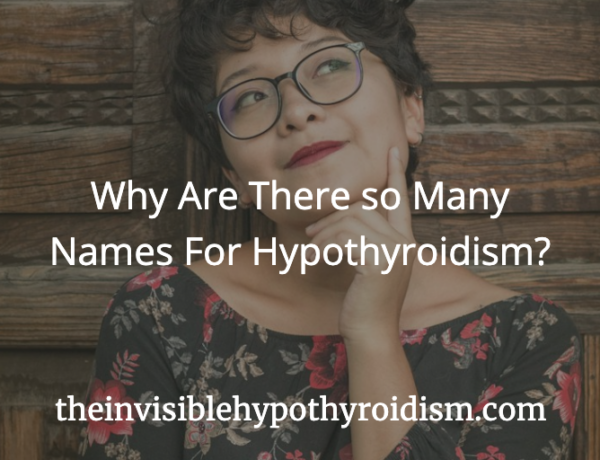Originally published on 28th September 2021 Last updated on 12th October 2023
Did you know that you could be sensitive to gluten i.e. have it still cause you symptoms or problems, but not be Coeliac? If you have hypothyroidism and /or Hashimoto’s, we’re often told that it’s quite likely we do have some form of gluten sensitivity.
I avoided going gluten-free for ages, when I was at the beginning of my thyroid diagnoses. I even started and then gave up on a gluten-free diet a few times, before committing to it for the longterm. But once I did commit to it, I saw so many improvements in my health and thyroid related symptoms, that I’ve never looked back since.
What is a Gluten Sensitivity?
As explained by Coeliac UK:
“Non coeliac gluten sensitivity is when symptoms similar to coeliac disease are experienced, but there are no associated antibodies of the gut..”
Like me, you may have been tested for Coeliac Disease and it came back negative, yet you still have unexplained issues such as fatigue, brain fog, mood swings, muscle and joint aches and pains, stomach/gut complaints, goitre/swelling or pain of the throat and acid reflux, even despite being on thyroid medication with optimal levels.
When I personally eat a gluten-filled diet (or get ‘glutened‘), I feel a general increase in thyroid symptoms and decline in my overall health. This includes feeling fatigued, achy, fuzzy minded, breaking out in acne and sometimes even experiencing gastrointestinal discomfort. Yet I was tested for Coeliac Disease (before going gluten-free) and was told I did not have it. However, I know that I definitely feel better not eating gluten.
In fact, when I get ‘glutened‘, I often experience a thyroid flare up.
Related Article: What Happens When You Gluten Me
What is The Thyroid and Gluten Link?
It’s reported that around 90% of people with hypothyroidism have the autoimmune disease Hashimoto’s Thyroiditis as the cause. [1]
Hashimoto’s attacks the thyroid gland, causing hypothyroidism. A common symptom of Hashimoto’s seems to be gluten sensitivity.
Why?
One theory we see a lot is that gluten is said to trigger the same autoimmune reactions that cause you to have Hashimoto’s in the first place, since the cells of your thyroid are similar to the make up of gluten, and it confuses the body, increasing inflammation, which can mean worse or extra symptoms. However, this theory is yet to be conclusively proved (or disproven).
Other possible reasons for thyroid patients feeling better on a gluten-free diet include:
- that eating naturally gluten-free usually means a reduction in processed, high sugar foods overall
- that a gluten sensitivity can lead to poor gut health, which can be indicated by a low absorption rate of minerals and vitamins. For example, low levels of B12, D, Iron etc.
Thyroid Pharmacist Izabella Wentz conducted a survey amongst thyroid patients, which showed that 86% who went gluten-free reported an improvement in digestive symptoms. Notably, only 3.5% of the respondents were actually diagnosed with coeliac disease. It could be that some of these respondents were undiagnosed Coeliac, have gluten sensitivity or, as touched on above, were just consuming a much less processed diet. [2]
When Italian researchers also put subclinically hypothyroid people with coeliac disease on a gluten-free diet for one year, thyroid function normalised in 71% of them, with another 19% normalising their thyroid antibodies. The researchers concluded that in some cases, a gluten-free diet may single-handedly reverse the abnormality. [3]
The Effect of Gluten-Free Diet on Thyroid Autoimmunity in Drug-Naive Women With Hashimoto’s Thyroiditis: A Pilot Study also concluded that their results suggested a gluten-free diet may bring clinical benefits to women with Hashimoto’s. [4]
Related Article: Going Gluten-Free: A How-To Guide
Please keep in mind though, that there are huge benefits in screening for coeliac disease before removing gluten. For example, diagnostic tests for coeliac disease require you to be on a gluten-containing diet so that the test can detect any antibodies to gluten. If you are already on a gluten-free diet when tested for coeliac disease, you will need to reintroduce gluten for several weeks before the blood test, in order to get accurate results. Having a formal diagnosis of coeliac disease, if you have it, is also important.
Also, if coeliac disease is confirmed, as well as lifelong, strict gluten-free diet a longterm treatment plan will also need creating by your doctor and dietician to ensure you’re still getting the right nutrients from other foods. Monitoring of any intestinal damage and healing, as well as vitamin or mineral deficiencies is also recommended.
As of 2024, NICE Guidelines recommend that all autoimmune thyroid patients (those with Graves’ or Hashimoto’s) are screen for coeliac disease at diagnosis. Most people with hypothyroidism also have Hashimoto’s (as the cause) so this is important. Research shows that people with coeliac disease have a 1.5% to 3.8% chance of developing autoimmune thyroid disease, so there is a big correlation between the two conditions. If you test negative but develop possible symptoms at a later date, it is recommended you be screened again, as you can develop it at any time.
The 9 Thyroid Symptoms of Mine That Improved by Going Gluten-Free
1. Fatigue
Thyroid fatigue is easily the most complained about symptom of having hypothyroidism and Hashimoto’s. The fatigue I felt when I was on Levothyroxine was nothing short of debilitating, and although this hugely improved when I switched to natural desiccated thyroid medication, I struggled with it.
After three weeks of being gluten-free, I noticed that I was falling asleep easier in the evenings and actually staying asleep too. I had confirmed that I had adrenal dysfunction in the form of high cortisol all day, previous to going gluten-free, and it seemed that by removing gluten from my diet, it helped to bring that cortisol down and resolve my sleep issues of struggling to get to sleep and stay asleep.
As with other symptoms that improved in this list, I started to suspect that:
Eating gluten with a gluten sensitivity lead to inflammation and poor gut health, which caused/contributed to the high cortisol adrenal dysfunction (also sometimes called ‘adrenal fatigue‘), with the poor gut health and high cortisol driving a sex hormone imbalance of too much oestrogen to progesterone (which I also confirmed via testing) AKA oestrogen dominance).
I started seeing a functional medicine practitioner soon after going gluten-free, who confirmed that this is often how it all works in thyroid patients. Many of us also have adrenal, gut and sex hormone issues which drive each other in some mad cycle, she explained.
The gluten, inflammation, gut health, adrenals and oestrogen dominance were all affecting one another. But by going gluten-free as an initial step to tackle these issues, things started to improve.
Read about the debate of whether oestrogen dominance is ‘real’, here.
2. Brain fog
I realised that after three weeks of being gluten-free, I had been feeling less brain fogged and more productive in the mornings. In fact, the brain fog had completely gone. I remember sitting in the canteen at work, eating my lunch, when I realised I hadn’t had brain fog for a few weeks. I felt so much clearer minded.
3. Acne
The biggest thing that going gluten-free did for me was improve my cystic acne.
Driven by that leaky gut -> high cortisol -> oestrogen dominance cycle I explained above, within three weeks of eating gluten-free, my acne had gone from this:
To this:
And it only got better as time went on, too. If I’m ever ‘glutened‘, I break out in cystic acne the next day.
4. Constipation and Diarrhoea
Before being gluten-free, I experienced the common Hashimoto’s symptom of switching between constipation and diarrhoea. Most likely, as my thyroid levels were moving up and down due to ongoing destruction of my thyroid gland.
Going gluten-free helped to put my Hashimoto’s in to remission and made my thyroid condition much more stable, so it’s no surprise that this symptom resolved too.
5. Itchy Scalp
My itchy (and sore as a result) scalp improved hugely once gluten-free. It flares up again at times that my oestrogen to progesterone balance is off again or fluctuating (such as when I was pregnant).
6. Muscle Cramps
Muscle aches and pains, joint pain, cramps and more are all frequently reported by thyroid patients. My muscle aches and pains were particularly bad at nighttime and even affected how well I slept. They also disappeared soon after going gluten-free. Likely due to lowered inflammation.
7. Irregular Periods / Infertility
There was a time when I was technically infertile, due to the oestrogen dominance I had sending my periods all over the place and stopping me from ovulating at all (this is what I was diagnosed with, anyway). For quite some time, my periods were the very definition of sporadic. I never knew when they were going to turn up and how long for, until I went gluten-free and a month later, experienced my first ‘normal’ cycle in a year or so. It was the average 28-days long and I ovulated for the first time in a year. I was really shocked, but since then, they’ve stayed consistently regular and I’ve gone on to have a baby.
The gluten driving the leaky gut, high cortisol and thus, oestrogen dominance was clearly starting to resolve to the point that my cycles finally returned to normal. The acne improving aligned with my periods becoming regular again.
8. Heart Palpitations
I used to experience a lot of heart palpitations, especially after eating, and started to wonder if it was linked to eating carbs or, more specifically, gluten. I would often get them after eating pizza, bread or pasta, for example.
The heart palpitations pretty much stopped straight away after I went gluten-free, and if I eat carbs now, I don’t experience them. But if I get glutened, yes, I do get them and they’ll last an hour or so.
9. Acid reflux
Seeing as gluten can cause or contribute to stomach and gut issues, it’s not really a surprise that removing it improved my acid reflux, even to the point of no longer needing the acid suppressor Omeprazole prescribed by my doctor. I was able to come off it and no longer experience acid reflux whenever I ate.
Have you gone gluten-free and seen any benefits? I’d love to hear in the comments below.
And an important note: as someone who personally has a history of eating disorders / disordered eating myself, I am aware that the information in this article could be triggering if you’ve previously / are currently restricting foods. Do know that I will never suggest that any of us HAVE to cut out ANY food types, so I present this info for each of us to make that decision ourselves if we still have ongoing thyroid symptoms or struggles to manage the condition.
Some people may begin removing one or two foods from their diet and enter down a slippery slope in to disordered eating behaviours, so if this is you, and you start to feel anxious about food or much of your time and energy is preoccupied with this, please seek out support from a trained professional and be cautious about altering your diet. Disordered eating needs to be taken more seriously and I don’t wish to contribute to more people struggling with this.
I’m not a fan of massively restrictive diets which can encourage disordered eating behaviours, and thus, create more stress which, in turn, isn’t great for our health either.
You can click on the hyperlinks in the above post to learn more and see references to information given.
See also:

References:
[1] https://www.ncbi.nlm.nih.gov/pubmed/3066320
[2] https://thyroidpharmacist.com/articles/top-9-takeaways-from-2232-people-with-hashimotos/
[3] https://www.ncbi.nlm.nih.gov/pubmed/11280546
[4] https://www.thieme-connect.de/products/ejournals/pdf/10.1055/a-0653-7108.pdf

